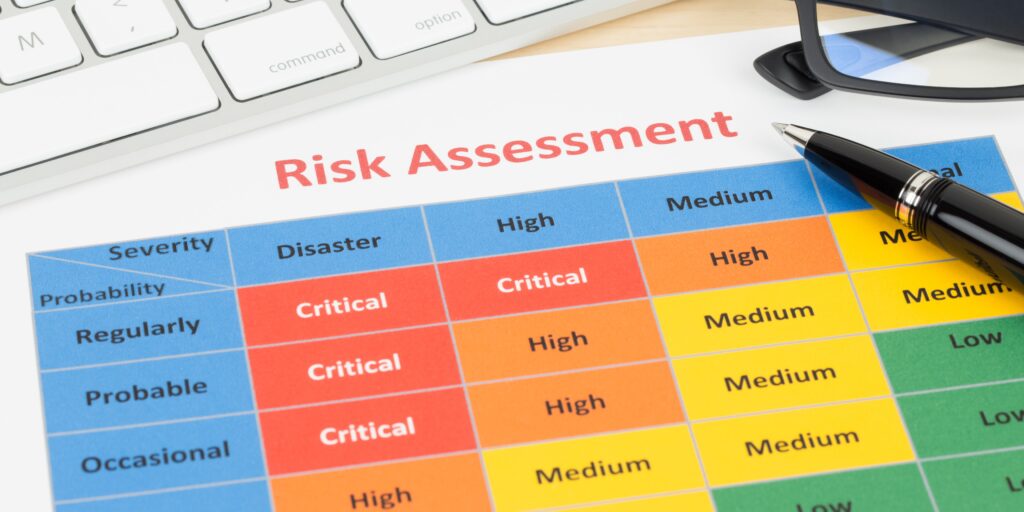
How Supply Chain Resilience Can Safeguard Your Business in Times of Crisis
Disruptions in the business environment affect all organisations, and businesses need to be prepared to manage challenges that could impact their supply chains. For companies that aim to protect their operations, maintain customer confidence, and secure their market position, building a resilient supply chain strategy is essential. This blog explores supply chain resilience, its importance for businesses, and how to enhance your supply chains. We will also discuss how IMM Institute’s Professional Certificate in Transport and Logistics can provide valuable knowledge for implementing these strategies.
What do We Mean by Supply Chain Resilience?
Supply chain resilience refers to a business’s preparedness and ability to recover from unexpected disruptions or changes affecting its operations. Whether caused by natural disasters, pandemics, political unrest, or market changes, resilient supply chains are designed to adapt and continue essential functions.
A resilient supply chain offers flexibility, ensuring that in the event of a disruption, companies can quickly respond to mitigate negative consequences. This might involve relocating operations, finding alternative raw material sources, or rerouting transportation networks. Such measures help maintain the flow of goods and services, allowing businesses to thrive even in challenging circumstances.
The Importance of Building Supply Chain Resilience

Today’s business landscape involves complex supply chains spanning multiple geographical regions, suppliers, logistics partners, and regulatory frameworks. With this complexity comes a higher risk of disruptions, and businesses that are not prepared may face significant setbacks. Here are key reasons why developing supply chain resilience is crucial:
- Risk Reduction: Supply chain managers often grapple with disruptions that can lead to substantial financial losses, such as supplier shortages, transportation delays, or regulatory changes. A resilient supply chain reduces these risks by anticipating and mitigating potential issues.
- Maintaining Consumer Confidence: During crises, consumers need assurance that they can still rely on businesses for products and services. When companies demonstrate operational continuity, they build trust and loyalty, strengthening their market position even in uncertain times.
- Competitive Advantage: Businesses lacking the capacity to adapt during supply chain disruptions risk losing customers to competitors. Investing in resilience not only enables companies to survive difficult periods but also positions them as reliable providers, enhancing their reputation and market share.
Strategies to Strengthen Your Supply Chain’s Resilience
Now that we’ve discussed the importance of supply chain resilience, let’s look at some effective strategies businesses can adopt to achieve it:
- Diversify Your Supplier Base: Relying on a single supplier increases risk. By using multiple suppliers across various geographical regions, businesses reduce dependency on any one source and can quickly switch to alternatives when needed.
- Leverage Supply Chain Technology and Analytics: Technology is crucial for enhancing supply chain management. Real-time tracking and predictive analytics allow companies to monitor shipments, anticipate delays, and manage inventory proactively, enabling informed and timely decision-making.
- Develop Contingency Plans and Agile Transportation Systems: Preparing contingency plans helps businesses respond swiftly during emergencies. This could involve rerouting shipments, arranging alternative transportation, or securing additional storage facilities.
- Implement Continuous Risk Management: Markets are dynamic, and supply chains are constantly evolving. Regularly updating risk mitigation plans ensures businesses are prepared for new risks that may arise as circumstances change.

According to a report by McKinsey & Company, resilient supply chains lead to improved productivity for businesses globally. These insights highlight the importance of proactive measures and continuous improvement in supply chain management.
Strengthen Your Skills with IMM Institute

Building resilient supply chains requires specialised skills and expertise. IMM Institute’s Professional Certificate in Transport and Logistics equips students with contemporary supply chain management practices and technologies. The course covers crucial topics such as risk management, transport operations, and logistics planning, offering valuable insights for students and professionals looking to protect their businesses from potential disruptions.
Whether you are an entrepreneur, executive, or student eager to learn more about transport and logistics, this course can enhance your knowledge and career prospects. It provides essential knowledge on building resilient supply chains, enabling better management and optimisation of supply chain processes.
Enrol now and start creating a resilient business that can thrive amid competition and uncertainty. Explore the Professional Certificate in Transport and Logistics course.
Summary
Supply chain resilience is a critical requirement for businesses that want to succeed in today’s fast-changing and unpredictable environment. Measures such as diversifying suppliers, leveraging technology, and implementing flexible logistics systems are essential steps to safeguard your business. To stay ahead in supply chain management and build systems capable of absorbing disruptions, consider enrolling in one of IMM Institute’s courses to gain the right skills for the job.
















